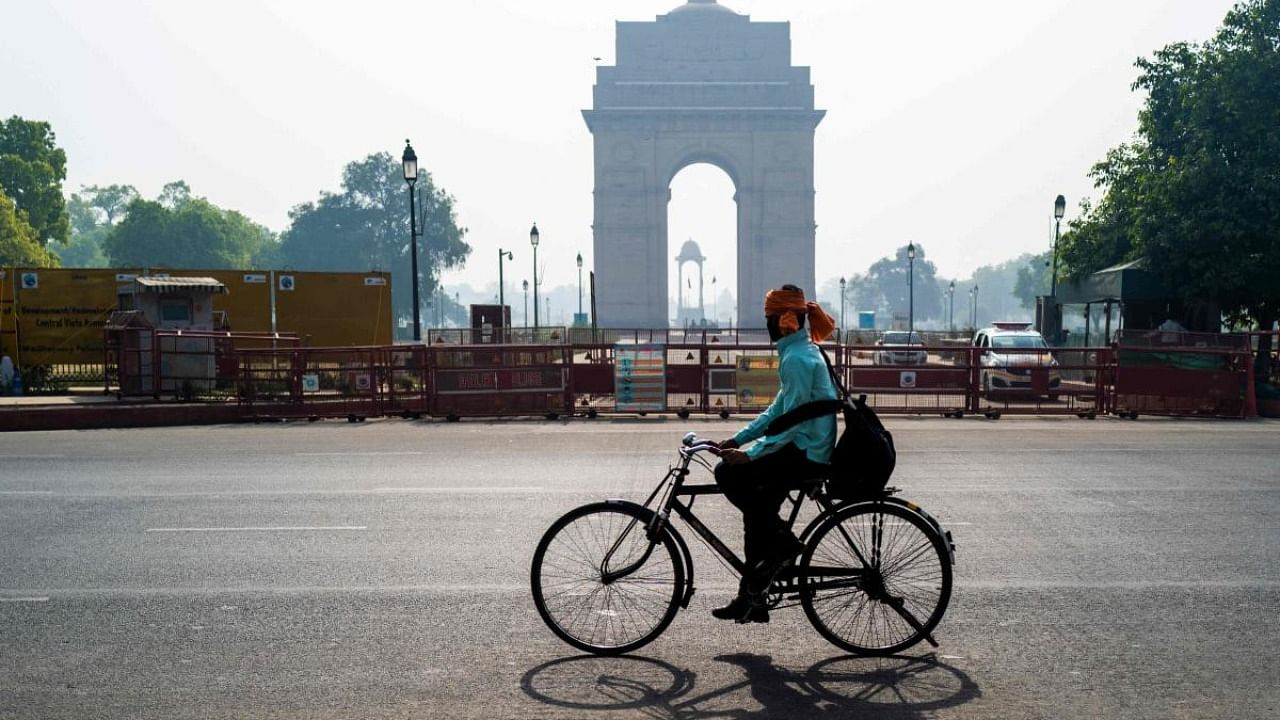
Delhi on Friday recorded 8,506 Covid-19 cases, the daily count dipping to below the 10,000-mark again after a month, with medical experts believing the lockdown to be the main factor behind the dip amid the second wave of the pandemic.
The national capital had registered 7,897 coronavirus cases on April 10 with 39 deaths, as per official data.
The fatality count stood at 289 on Friday, with experts cautioning that even over 8,500 daily cases was "still a huge figure" and "severity of cases were still the same as before".
Chief Minister Arvind Kejriwal had said the city's Covid-19 cases count in the last 24 hours, just over 8,500, was much lower than the figures reported on April 20, when it had crossed the 28,000-mark.
Read: Delhi sets up oxygen concentrator bank; Covid-19 cases dip further with 6,500 new infections
Doctors at leading government and private hospitals in Delhi said there is a relative fall in the number of cases and "still a long way to go" before the daily count falls below the 2,000-mark, as it was a few months earlier.
"Lockdown, I would say is the biggest factor in arriving at a situation where we are now, when daily cases from 28,000 have come down to about 8,500. However, it is still a huge figure, and there should be no room for complacency, on any front," Medical Director of Rajiv Gandhi Super Speciality Hospital (RGSSH), B L Sherwal, told PTI.
RGSSH is a Delhi government-run 650-bed facility, and about 500 beds are earmarked for treating Covid-19 patients, and 350 are currently occupied, most of them being ICU patients, he said.
Asked about the number of daily fatalities at the facility located in east Delhi, Sherwal said, about 10-12 patients per day, out of the 350 beds occupied as of now, which would soon be expanded to full capacity.
"While daily cases have come down, the severity of infection is still the same, and new patients are being brought to our hospital in the same condition as before. Many of them are brought dead or die shortly after being brought to emergency. So, we must understand the gravity of the situation," he added.
Delhi had been reeling under a brutal second wave of the pandemic that is sweeping the country, claiming a massive number of lives daily, with the recent oxygen supply shortage issue at various hospitals adding to the woes.
On Thursday, the city had recorded 10,489 cases and 308 deaths. Last year, the highest daily cases was 8,593 reported on November 11.
This year, the lockdown here was first imposed on April 19, amid a steep rise in Covid-19 cases, and has been extended thrice so far. On May 9, it was extended by another week by Chief Minister Kejriwal, till May 17 morning.
Also read: Covid-19 crisis: Over 80% of the elderly suffering from anxiety over health, shows survey
In his briefing on Friday, Kejriwal said, "In these times of despair, I wish to bring some good news for everyone. About 8,500 new corona cases have been registered in Delhi in the last 24 hours. The infection rate has come down to 12 per cent today... It was 36 per cent on April 22".
Dr Richa Sareen, consultant, pulmonology at Fortis hospital here, echoed Sherwal and said the prime factor behind, a relatively improved situation, is that a lockdown was imposed.
She argued that had the lockdown been imposed a week earlier in April, the situation wouldn't have become this worse, but then it's a difficult decision by any government.
"Besides lockdown, another factor is that a large number of the population has got infected by the virus, so they have developed immunity, and hence, in a way, herd immunity has been attained, which helps in breaking the chain of transmission," Sareen said.
RGSSH's Sherwal also attributed the ongoing vaccination drive as a contributing factor for slowing down of the daily cases.
Sareen, however, said, the efficacy of the vaccination will be seen in the coming weeks and months, and "too early to factor in for the dip in daily cases".
"But, yes, the maniacal and distressful scenes at the hospital have reduced a bit. However, the severity of cases is still there and we must not lower our guards. We hope, people will learn lessons from this tragedy and horrific deaths and continue to follow Covid-appropriate behaviours," she said.
Dr Suranjit Chatterjee, a senior consultant at Apollo Hospitals here, agreed with Sareen, that the situation at hospitals has improved a bit.
"We are getting fewer SOS calls, my phone's ringing less number of times, the daily routine at work is not that stressful as it was a few weeks ago. So, things seem a bit better, but again we have to be watchful," he added.
Kejriwal in his briefing also said that people are not facing problems in getting beds here but ICU beds are still full. This means, the number of serious patients have not declined much, the chief minister said.
He attributed the positive impact of the lockdown restrictions to the disciplined behaviour of the people of Delhi while asserting that "the battle is not won yet" and the number of coronavirus cases had to reduced to zero.